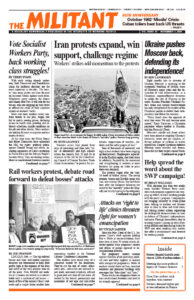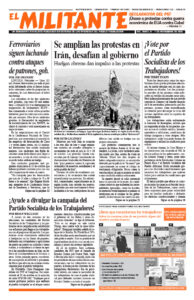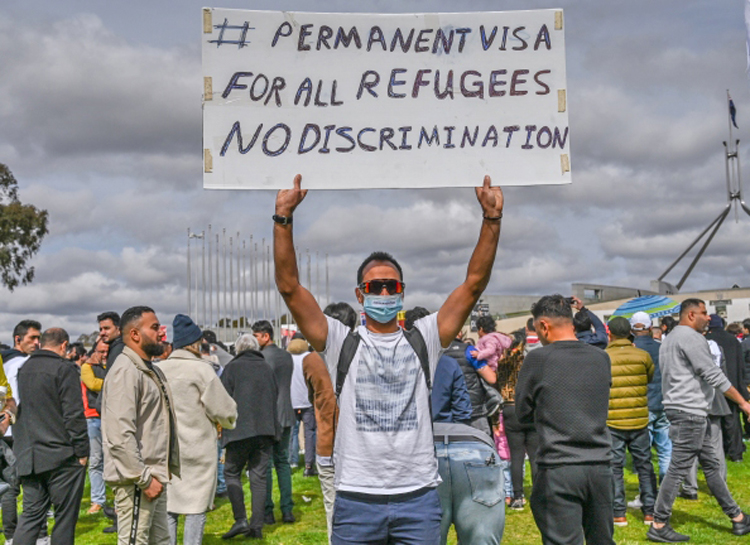SYDNEY — A protest set for Nov. 6 here will challenge the Australian Labor Party government’s failure to carry out a promise to grant permanent visas to thousands of asylum-seekers. For years they have been barred by successive governments from settling in Australia.
The demonstration was called by supporters of the rights of refugees, including many who themselves spent years in the Australian government’s immigration detention centers. It follows a national protest of 1,500 in Canberra, the capital, Sept. 6 and several hundred in Sydney Sept. 18.
A U.N. mission to investigate charges of torture in Australia was suspended Oct. 23 after being denied access to jails and detention facilities in the states of Queensland and New South Wales. Rights groups have constantly cited abuses against Indigenous and refugee detainees across Australia.
Thirty thousand refugees live in Australia on various temporary visas, which block their ability to work, study or reunite with family. More than 19,000 are on “temporary protection” or “safe haven enterprise” visas, which the government has promised to end. Another 10,000, whose cases the government doesn’t plan to review, have been refused permanent residency and live under continual threat of deportation.
Since its election in May, the Labor Party government has continued to “turn back” refugee boats headed to Australia. As many of the asylum-seekers are from crisis-ridden Sri Lanka, Canberra seeks its government’s cooperation in helping the Australian navy intercept these boats.
At a meeting here called by the Refugee Action Coalition Oct. 10, Sri Lankan refugee Thanush Selvarasa explained, “We need a permanent solution to start a new life.” He is currently on a temporary “bridging” visa, which has to be renewed every six months, making it “hard to find a job.” And it means Selvarasa “can’t study, or travel overseas” to visit his family.
He spent seven years in the Australian immigration detention center on Manus Island in Papua New Guinea before being evacuated to Australia for medical treatment. He was imprisoned at the Park Hotel in Melbourne, one of several the Australian government used to detain hundreds of refugees, before they were finally granted a bridging visa.
Selvarasa said people on these visas were getting letters from the immigration department demanding that they be ready to leave the country on a few days’ notice. While these letters were withdrawn after protests, it shows the uncertainty they face.
Roghieh, a 66-year-old Iranian woman, said some refugees were being pressured to agree to resettle in the U.S., Canada or New Zealand.
During the discussion a young woman, Aylin, explained that she had been imprisoned in the Australian detention center on the Pacific islands nation of Nauru at the age of 12 when her mother sought asylum from Iran. She was allowed to come to Australia when she turned 18, but was put under a “community detention” visa that blocks her from working or studying. She gets 180 Australian dollars ($113) every two weeks from the government to live on, she said, barely a tenth of the minimum wage.


